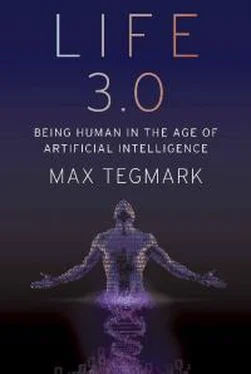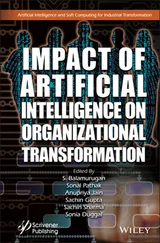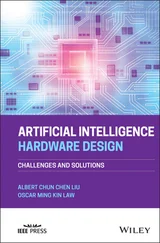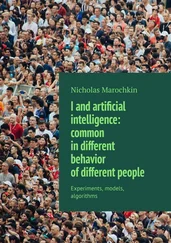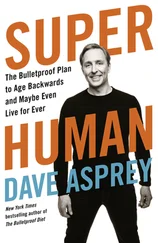Death by Banality
The deliberately silly example of a paper-clip-maximizing superintelligence was given by Nick Bostrom in 2003 to make the point that the goal of an AI is independent of its intelligence (defined as its aptness at accomplishing whatever goal it has). The only goal of a chess computer is to win at chess, but there are also computer tournaments in so-called losing chess, where the goal is the exact opposite, and the computers competing there are about as smart as the more common ones programmed to win. We humans may view it as artificial stupidity rather than artificial intelligence to want to lose at chess or turn our Universe into paper clips, but that’s merely because we evolved with preinstalled goals valuing such things as victory and survival—goals that an AI may lack. The paper clip maximizer turns as many of Earth’s atoms as possible into paper clips and rapidly expands its factories into the cosmos. It has nothing against humans, and kills us merely because it needs our atoms for paper clip production.
If paper clips aren’t your thing, consider this example, which I’ve adapted from Hans Moravec’s book Mind Children . We receive a radio message from an extraterrestrial civilization containing a computer program. When we run it, it turns out to be a recursively self-improving AI which takes over the world much like Prometheus did in the previous chapter—except that no human knows its ultimate goal. It rapidly turns our Solar System into a massive construction site, covering the rocky planets and asteroids with factories, power plants and supercomputers, which it uses to design and build a Dyson sphere around the Sun that harvests all its energy to power solar-system-sized radio antennas. *3This obviously leads to human extinction, but the last humans die convinced that there’s at least a silver lining: whatever the AI is up to, it’s clearly something cool and Star Trek –like. Little do they realize that the sole purpose of the entire construction is for these antennas to rebroadcast the same radio message that the humans received, which is nothing more than a cosmic version of a computer virus. Just as email phishing today preys on gullible internet users, this message preys on gullible biologically evolved civilizations. It was created as a sick joke billions of years ago, and although the entire civilization of its maker is long extinct, the virus continues spreading through our Universe at the speed of light, transforming budding civilizations into dead, empty husks. How would you feel about being conquered by this AI?
Descendants
Let’s now consider a human-extinction scenario that some people may feel better about: viewing the AI as our descendants rather than our conquerors. Hans Moravec supports this view in his book Mind Children: “We humans will benefit for a time from their labors, but sooner or later, like natural children, they will seek their own fortunes while we, their aged parents, silently fade away.”
Parents with a child smarter than them, who learns from them and accomplishes what they could only dream of, are likely happy and proud even if they know they can’t live to see it all. In this spirit, AIs replace humans but give us a graceful exit that makes us view them as our worthy descendants. Every human is offered an adorable robotic child with superb social skills who learns from them, adopts their values and makes them feel proud and loved. Humans are gradually phased out via a global one-child policy, but are treated so exquisitely well until the end that they feel they’re in the most fortunate generation ever.
How would you feel about this? After all, we humans are already used to the idea that we and everyone we know will be gone one day, so the only change here is that our descendants will be different and arguably more capable, noble and worthy.
Moreover, the global one-child policy may be redundant: as long as the AIs eliminate poverty and give all humans the opportunity to live full and inspiring lives, falling birthrates could suffice to drive humanity extinct, as mentioned earlier. Voluntary extinction may happen much faster if the AI-fueled technology keeps us so entertained that almost nobody wants to bother having children. For example, we already encountered the Vites in the egalitarian-utopia scenario who were so enamored with their virtual reality that they had largely lost interest in using or reproducing their physical bodies. Also in this case, the last generation of humans would feel that they were the most fortunate generation of all time, relishing life as intensely as ever right up until the very end.
Downsides
The descendants scenario would undoubtedly have detractors. Some might argue that all AIs lack consciousness and therefore can’t count as descendants—more on this in chapter 8. Some religious people may argue that AIs lack souls and therefore can’t count as descendants, or that we shouldn’t build conscious machines because it’s like playing God and tampering with life itself—similar sentiments have already been expressed toward human cloning. Humans living side by side with superior robots may also pose social challenges. For example, a family with a robot baby and a human baby may end up resembling a family today with a human baby and a puppy, respectively: they’re both equally cute to start with, but soon the parents start treating them differently, and it’s inevitably the puppy that’s deemed intellectually inferior, is taken less seriously and ends up on a leash.
Another issue is that although we may feel very differently about the descendant and conqueror scenarios, the two are actually remarkably similar in the grand scheme of things: during the billions of years ahead of us, the only difference lies in how the last human generation(s) are treated: how happy they feel about their lives and what they think will happen once they’re gone. We may think that those cute robo-children internalized our values and will forge the society of our dreams once we’ve passed on, but can we be sure that they aren’t merely tricking us? What if they’re just playing along, postponing their paper clip maximization or other plans until after we die happy? After all, they’re arguably tricking us even by talking with us and making us love them in the first place, in the sense that they’re deliberately dumbing themselves down to communicate with us (a billion times slower than they could, say, as explored in the movie Her ). It’s generally hard for two entities thinking at dramatically different speeds and with extremely disparate capabilities to have meaningful communication as equals. We all know that our human affections are easy to hack, so it would be easy for a superhuman AGI with almost any actual goals to trick us into liking it and make us feel that it shared our values, as exemplified in the movie Ex Machina .
Could any guarantees about the future behavior of the AIs, after humans are gone, make you feel good about the descendants scenario? It’s a bit like writing a will for what future generations should do with our collective endowment, except that there won’t be any humans around to enforce it. We’ll return to the challenges of controlling the behavior of future AIs in chapter 7.
Zookeeper
Even if we get followed by the most wonderful descendants you can imagine, doesn’t it feel a bit sad that there can be no humans left? If you prefer keeping at least some humans around no matter what, then the zookeeper scenario provides an improvement. Here an omnipotent superintelligent AI keeps some humans around, who feel treated like zoo animals and occasionally lament their fate.
Why would the zookeeper AI keep humans around? The cost of the zoo to the AI will be minimal in the grand scheme of things, and it may want to retain at least a minimal breeding population for much the same reason that we keep endangered pandas in zoos and vintage computers in museums: as an entertaining curiosity. Note that today’s zoos are designed to maximize human rather than panda happiness, so we should expect human life in the zookeeper-AI scenario to be less fulfilling than it could be.
Читать дальше
